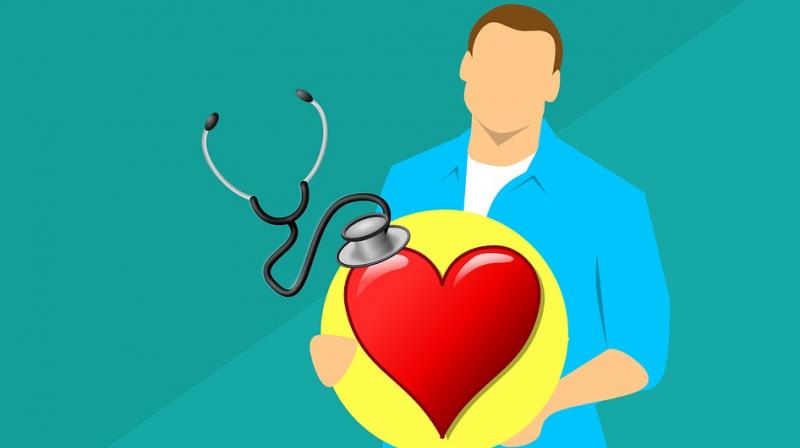World Hypertension Day special: All you need to know about it

Hypertension, commonly known as high blood pressure, is a common condition in which there is an excessive long term force of blood applied to the artery walls leading to heart diseases. The more blood your heart pumps and the narrower your arteries are, the higher would be your blood pressure. The recommended normal blood pressure levels range between 120/80mm Hg to 140/90 mm Hg.
High blood pressure rarely has noticeable symptoms. If left untreated it can increase the risk of heart attacks or strokes. "A large number of people do not even know they have the condition. A major study in 2014 concluded that about 33 per cent urban and 25 per cent of rural Indians were hypertensive," informed Dr Shankar Narang, COO, Paras Healthcare.
Hypertension has been long recognised as one of the major risk factors for cardiovascular disease and premature deaths worldwide. "It is a 'silent killer' with every third person having suffered from it, hypertension has emerged as the most important risk factor for morbidity and mortality in all age groups across the globe," apprised Dr (Col) Vijay Dutta, Senior Consultant - Internal Medicine & Respiratory Services, Indian Spinal Injuries Centre.
In most people, the cause of high blood pressure remains unknown. Hypertension usually does not show any signs or symptoms. "Sometimes persistently high blood pressure may cause headaches, giddiness, breathlessness on exertion, tiredness, chest pain, and tingling in the hands and feet," informed Dr Tushar Rane, Consultant, internal medicine, Apollo Hospital Mumbai.
Some characteristic risk factors for hypertension include obesity, drinking too much alcohol, smoking, sedentary lifestyle, processed food, and family history.
Hypertension not only affects older adults but young people as well. "Nowadays young patients come with various cardiovascular disorders like acute coronary syndrome or heart attack at a young age as early as 25-30 years," Dr Dutta added.
According to Dr Dutta's observation, such patients are diagnosed to have features of long-standing hypertension. "The delayed diagnosis due to asymptomatic state, poor awareness and mass health screening practices at the level of primary or secondary healthcare," Dr Dutta said.
Regular health check-ups and proper case management under the supervision of a cardiologist can help manage the condition and treat the ailment.
"The Home Remedies other than medical treatment which can be adopted are restriction of salt in the diet, quitting alcohol and smoking, weight reduction if obese, healthy diet, regular aerobic exercises, adopting yoga and meditation," Dr Tushar Rane, Apollo Spectra Hospital, Mumbai pointed.
According to Dr Rane, high blood pressure treatment requires immediate medical management in addition to the home remedies and with a proper diet and exercise and regular consultation with a physician.
There are some adverse effects of persistently high blood pressure which include atherosclerosis popularly known as 'blockages' in our arteries, "These are caused due to an accumulation of fats within the lumen of the blood vessel causing narrowing of the lumen," explained Dr Rane.
"Hypertensive nephropathy or kidney disease is caused due to damage to the fine blood vessels and filters present within the kidney which unable the kidneys to excrete the toxic substances," he added.
Besides, hypertension can also damage eyes, a condition known as hypertensive retinopathy, and stroke due to blockage in the blood vessels that supply blood to the brain parenchyma.
Dr Dutta feels that there should be more awareness about hypertension and robust screening campaigns at primary healthcare level for early diagnosis of hypertension. "In addition to the screenings, measures such as spreading the awareness about a healthy lifestyle, good nutritious diet, and counseling of people addicted to tobacco/ alcohol should be taken up," she suggested.
The World Hypertension Day was first launched on 14th May 2005 by WHL (World Hypertension League), an association of 85 national hypertension societies and leagues. The objective behind the observance is to spread awareness about hypertension among the masses.
